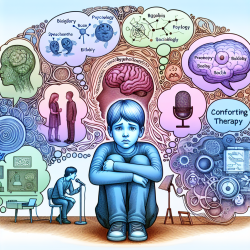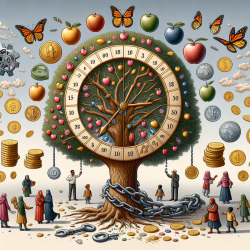Childhood social anxiety disorder (SAD) is a significant challenge for many children, characterized by an intense fear of social situations and potential embarrassment. Recent research, such as the study "Taking a Closer Look at Social Performance in Childhood Social Anxiety Disorder: Biopsychosocial Context Considerations and Effects of Cognitive Behavior Therapy," offers valuable insights for practitioners working to improve social performance in children with SAD.
This study involved 119 children aged 9-13 years, including 64 with SAD and 55 healthy controls (HC). The children participated in the Trier Social Stress Test (TSST), which measures social performance through self-reports and observer ratings, as well as vocal arousal analysis. The study found that children with SAD were objectively rated as more socially competent than HC children, despite rating their own performance lower. This discrepancy underscores the cognitive biases that children with SAD often experience.
Key findings from the study include:
- Children with SAD showed no significant improvement in subjective or objective social performance after cognitive behavior therapy (CBT).
- Vocal arousal did not correlate with social performance, suggesting that physiological measures alone may not be sufficient indicators of social anxiety.
- Subjective and objective social performance ratings were inversely related, highlighting the importance of addressing cognitive biases in therapy.
These findings suggest several practical applications for practitioners:
- Focus on Cognitive Biases: Given that children with SAD tend to underrate their social performance, therapy should emphasize cognitive restructuring to address these biases.
- Individualized Social Skills Training: While social skills training may not be universally necessary, it can be beneficial for children who exhibit specific social performance deficits.
- Multimethod Assessment: Incorporate both subjective and objective measures, as well as physiological indicators, to obtain a comprehensive understanding of a child's social performance.
To read the original research paper, please follow this link: Taking a Closer Look at Social Performance in Childhood Social Anxiety Disorder: Biopsychosocial Context Considerations and Effects of Cognitive Behavior Therapy.










